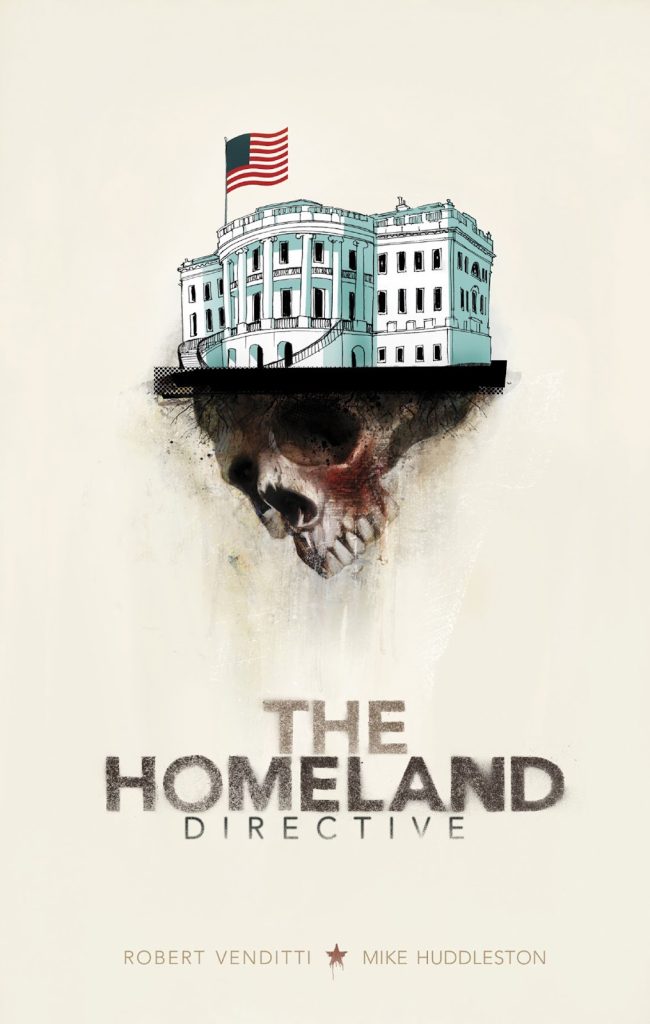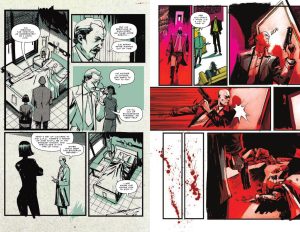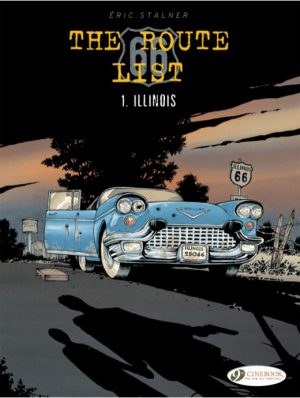Review by Ian Keogh
At a conference seen early in The Homeland Directive, Laura Regan is introduced as one of the world’s foremost micro-biologists and a leading researcher in disease control and prevention. These are skills she’ll need when the head of Homeland Security announces his disappointment with the White House incumbent by loosing a highly contagious virus. It’s worth noting early that Robert Venditti and Mike Huddleston conceived this around a decade before covid became headline news.
The result is a clever cinematic thriller elevated by Huddleston’s innovatively bold visual choices. It’s the work of a restless artist, sometimes using precise black and white linework with a single shade, and the other end of his spectrum being fully saturated rainbow pages. It works far better than you might think, supplying mood and surprise. A particularly resonant touch is faceless politicians.
More so than the disease, Regan becomes the central instigator of events while maintaining a puzzled innocence. She’s been identified as one of a small number of US residents who might be able to isolate the virus. When an abduction to be followed by murder fails, the instigators are influential enough to ensure she’s thoroughly discredited. While in one sense a stock character, her value here is as a comparative innocent who avoids tipping a political thriller toward left or right, although Venditti is careful to show cause along with effect. The really clever aspect, though, is Laura’s immediate salvation coming via a group of government employees from different departments who’ve joined forces to act on the suspicions their jobs give them licence to investigate.
Venditti’s applied a lot of thought, working out how to spread a virus, and central to the plot is how our daily lives are tracked. Venditti transforms the relatively low key actual US government department The Bureau of Consumer Protection into The Bureau of Consumer Advocacy. Whether or not his explanation of its ability to build a complete picture of any individual via their purchases and public records is true, it’s frighteningly convincing, as is so much else, which makes The Homeland Directive a page turner from beginning to end. You’ll also be discussing the price of freedom.
Unconventional, surprisingly low key and extremely satisfying, the question eventually becomes whether Venditti will pick salvation or despair for his ending over a thrillingly escalating series of spreads. Why don’t you find out?





